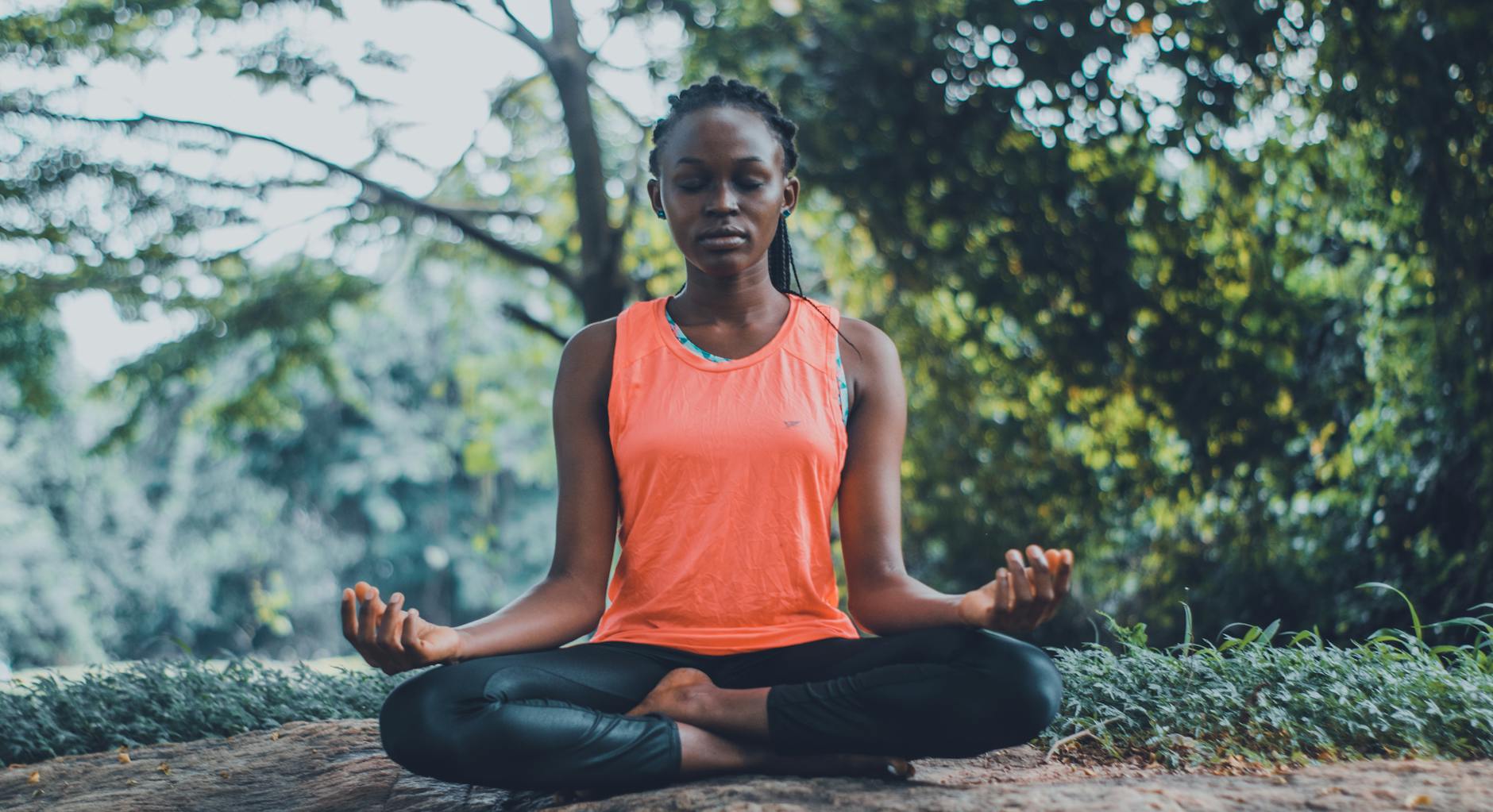In an age defined by constant connectivity, information overload, and ever-increasing demands, our minds often feel like cluttered attics rather than clear, expansive skies. Because of this digital hum, the relentless notifications, and the perpetual pressure to be “on” conspire to create a pervasive mental fog, hindering our ability to focus, make sound decisions, and experience genuine peace. Emotional turbulence, chronic stress, and an incessant internal monologue further obscure our inner landscape, leaving us yearning for a sense of calm and precision.
Amidst this modern cacophony, two ancient practices offer a potent antidote: mindfulness and meditation. Far from being esoteric rituals, these profound disciplines provide practical pathways to declutter the mind, sharpen focus, and cultivate an unshakeable inner clarity. They are not about escaping reality, but rather about learning to engage with it more fully, with greater awareness, and with an open heart. So, we’ll delve into how mindfulness and meditation work, their synergistic relationship, and the transformative impact they can have on achieving profound mental clarity.
The Elusive Nature of Mental Clarity
Before exploring the solutions, it’s essential to understand what we mean by “mental clarity” and what typically obstructs it. Mental clarity is more than just being intelligent or articulate, it’s the state of having a mind free from confusion, distraction, and emotional interference. It manifests as:
- Sharp Focus: The ability to concentrate intently on a task, idea, or conversation without easily succumbing to internal or external distractions.
- Emotional Regulation: The capacity to observe and understand emotions without being overwhelmed by them, allowing for thoughtful responses rather than reactive ones.
- Effective Decision-Making: The power to weigh options, consider consequences, and choose paths aligned with one’s values, unclouded by anxiety or indecision.
- Inner Peace: A pervasive sense of calm and contentment, even amidst external chaos.
- Cognitive Flexibility: The ability to shift perspectives, adapt to new information, and approach problems creatively.
Conversely, our mental clarity is frequently sabotaged by:
- Information Overload: A constant deluge of data that overwhelms our processing capabilities.
- Chronic Stress & Anxiety: The persistent “fight or flight” response that narrows focus and impairs higher-order thinking.
- Emotional Reactivity: Impulsive responses driven by unexamined feelings like anger, fear, or frustration.
- Mind-Wandering & Rumination: The default tendency of the mind to dwell on past regrets or future anxieties, pulling us away from the present.
- Lack of Presence: A disconnection from the immediate experience, leading to a feeling of being “on autopilot.”

Mindfulness: The Art of Being Here, Now
At its core, mindfulness is the practice of paying attention on purpose, in the present moment, and non-judgmentally, to the unfolding of experience moment by moment. It’s about waking up to our lives, rather than living them in a fog of distraction or preoccupation. While seemingly simple, this deliberate act of presence is profoundly transformative for mental clarity.
Mindfulness works by:
- Breaking the Cycle of Rumination: By anchoring attention to the present, mindfulness interrupts the endless loops of past-dwelling and future-worrying that consume mental energy.
- Creating Space for Observation: It teaches us to observe our thoughts and emotions as transient events, rather than identifying with them or being swept away by them. This creates a psychological distance that allows for clearer perspective.
- Enhancing Sensory Awareness: By paying attention to what we see, hear, smell, taste, and touch, mindfulness grounds us firmly in reality, reducing mental abstraction and promoting a vivid sense of being alive.
- Improving Focus: Regular mindful attention strengthens the “muscle” of concentration, making it easier to sustain attention on tasks requiring deep focus.
Practical mindfulness exercises to cultivate mental clarity
- Mindful Breathing: Simply focus your attention on the sensation of your breath entering and leaving your body. When your mind wanders, gently bring it back. This is the cornerstone of many mindfulness practices.
- Body Scan Meditation: Lie down and systematically bring your attention to different parts of your body, noticing any sensations without judgment. This helps to ground you in your physical experience and release tension.
- Mindful Eating: Pay full attention to the experience of eating – the colors, textures, aromas, and tastes of your food. Chew slowly and savor each bite.
- Mindful Walking: As you walk, notice the sensation of your feet on the ground, the movement of your legs, and the sights and sounds around you.
- Sensory Awareness: Pick one of your five senses (e.g., hearing) and dedicate a few minutes to simply noticing all the sounds around you, near and far, without labeling or judging them.

Meditation: The Formal Training Ground for the Mind
If mindfulness is the quality of being present, meditation is the formal practice designed to cultivate and deepen that quality. It’s a systematic training of attention and awareness, undertaken for a set period, often in a quiet, still environment. While there are many forms of meditation, most aim to either focus the mind on a single object (concentrative meditation) or observe the mind’s contents without judgment (open monitoring meditation).
Meditation cultivates mental clarity by:
Strengthening Attention
Just like physical exercise strengthens muscles, regular meditation strengthens the brain regions associated with attention and focus (e.g., the prefrontal cortex), making it easier to concentrate in daily life.
Reducing Mind-Wandering
Studies have shown that meditation can reduce activity in the Default Mode Network. Thus, the brain network associated with self-referential thought, rumination, and mind-wandering – the very culprits of mental fog.
Cultivating Equanimity
Through repeated observation of thoughts and emotions without reaction, meditators develop a sense of inner balance and non-reactivity, allowing them to navigate challenges with greater calm and clarity.
Enhancing Self-Awareness
By consistently observing the inner landscape, one gains profound insights into their own thought patterns, emotional triggers, and subconscious biases, leading to clearer self-understanding.
Altering Brain Structure
Research indicates that long-term meditation can lead to beneficial changes in brain structure, such as increased grey matter in areas related to learning, memory, and emotional regulation, and decreased amygdala volume (the brain’s fear center).
Different types of meditation can contribute to clarity in various ways:
- Concentration Meditation (Samatha): Focusing on a single object (like the breath, a mantra, or a visual image) trains the mind to stay put, reducing distraction and improving sustained attention.
- Vipassana Meditation: “Insight” meditation involves observing mental and physical phenomena as they arise and pass, cultivating deep understanding of their impermanence and non-self nature, leading to profound clarity and liberation from suffering.
- Loving-Kindness (Metta) Meditation: While primarily focused on cultivating compassion, the practice of extending kindness to oneself and others indirectly contributes to mental clarity by reducing negative emotions (like anger or resentment) that cloud judgment and create inner turmoil.
The Synergy: Mindfulness and Meditation Hand in Hand
Mindfulness and meditation are not separate entities but two sides of the same coin. Meditation is the formal practice you undertake, often sitting quietly, to train the mind. Mindfulness is the quality of awareness you bring to all moments of your life, whether you’re formally meditating or washing dishes.
Think of it this way: meditation is like going to the gym to train your attention muscle. Mindfulness is the strength and awareness you then apply throughout your day – in conversations, at work, in challenging situations. Regular meditation builds the foundational mental strength and equanimity that allows you to be more mindful, present, and clear-headed in every aspect of your life.
The cumulative effect of consistently practicing both is a profound and sustained cultivation of mental clarity:
- Improved Decision-Making: With a calmer, less cluttered mind, you can assess situations objectively, consider consequences, and make choices aligned with your true intentions.
- Enhanced Problem-Solving: A clear mind can approach complex problems with greater creativity and less emotional bias, allowing for innovative solutions.
- Greater Emotional Resilience: You learn to navigate emotional storms with greater ease, observing feelings without being swept away, thus maintaining clarity even in distress.
- Reduced Mental Clutter: The constant stream of unnecessary thoughts, worries, and distractions begins to subside, leaving more mental space for what truly matters.
- Deeper Self-Awareness: You gain profound insights into your own patterns of thinking, feeling, and behaving, leading to a more authentic and purposeful life.

Practical Steps to Cultivate Clarity Through These Practices
Embarking on this journey doesn’t require drastic life changes. Small, consistent steps can lead to monumental shifts.
- Start Small, Be Consistent: Begin with just 5-10 minutes of formal meditation each day. Consistency is far more important than duration.
- Find a Quiet Space: Choose a calm, distraction-free environment where you won’t be interrupted.
- Utilize Guided Meditations: For beginners, guided meditations (available on apps like Calm, Headspace, Insight Timer) can be incredibly helpful in directing your focus.
- Focus on Your Breath: The breath is a reliable anchor for attention. Simply observe the sensation of your breath without trying to change it.
- Be Patient and Kind to Yourself: Your mind will wander; that’s natural. The practice isn’t about stopping thoughts but about gently returning your attention. Treat yourself with compassion, not frustration.
- Integrate Mindfulness into Daily Activities: Choose one routine activity (like drinking tea, brushing teeth, or walking) and consciously bring your full attention to it, noticing every sensation.
- Consider a Retreat or Group: For deeper immersion, attending a meditation retreat or joining a local mindfulness group can provide invaluable support and guidance.
Overcoming Common Challenges
It’s natural to encounter hurdles:
- Restless Mind: This is normal. Every time you notice your mind has wandered and gently bring it back, you’re strengthening your attention muscle.
- Doubt & Impatience: Progress isn’t linear. Be patient and trust the process. The benefits unfold over time.
- “I Don’t Have Time”: Even 5 minutes can make a difference. Consider where you can reclaim small pockets of time.
- Misconceptions: Meditation isn’t about emptying your mind or achieving a blissful state. It’s about training awareness.
A Clear Path Forward
Cultivating mental clarity is no longer a luxury but a necessity for well-being and effective functioning. Mindfulness and meditation offer a time-tested, empirically supported framework for achieving this essential state. By systematically training our attention, observing our inner landscape without judgment, and grounding ourselves in the present moment, we can dissolve the pervasive mental fog and unlock a profound sense of inner peace, sharper focus, and an undeniable clarity that permeates every aspect of our lives.
The journey towards mental clarity is a continuous one, but with each mindful breath and every moment of meditation, you lay another stone on a path leading to a mind that is not just clearer, but also more resilient, compassionate, and truly free. So, embrace these ancient practices, and discover the extraordinary clarity that lies within you.














